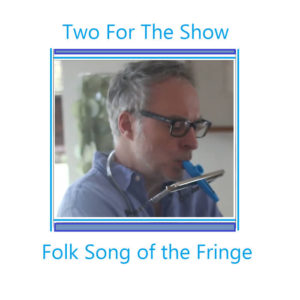 Guest post by David Harris, the 2021 AML Lyrics Award Head Judge.
Guest post by David Harris, the 2021 AML Lyrics Award Head Judge.
When I was invited to undertake the judging of the AML Lyrics Award earlier this year, I recruited a friend and musical collaborator, Jeff Goates, to work with me. Both of us grew up in Provo during the 1960s and 1970s, and this has undoubtedly colored our views of what constitutes good lyrics. I want to talk about how we chose to undertake this task and some of the factors that played a role in the decisions we came to.
Anytime you get a committee together to evaluate literature or art or music, it’s a good idea to agree on a set of ground rules right from the outset. There needs to be some sort of common starting point or else the results will be incoherent to some degree.
One of the things that Jeff and I agreed upon before getting started was that, in order to be considered good, a song had to consist of both quality music and quality lyrics. If either were lacking, that would be enough to disqualify it.
In other words, we used the overall sound of a song as a first pass. If the song did not make it past that test, it was not considered further. And we gave every album at least three chances to pass muster, meaning that we listened to at least three songs from each work, But, in actuality, we usually listened to more.
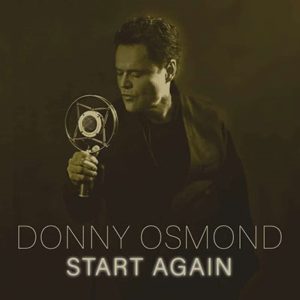 For example, we gave the Donny Osmond album Start Again any number of chances, listening to more than half of the tracks before panning it. I really wanted to like it. I know that Osmond is capable of much more than the tracks featured here. However, this is the sort of thing he has been able to successfully sell to his audience for decades and, if that’s what they want, who am I to criticize him for giving it to them? I remain hopeful, however, that he’ll make use of his considerable talents someday to create something really unique.
For example, we gave the Donny Osmond album Start Again any number of chances, listening to more than half of the tracks before panning it. I really wanted to like it. I know that Osmond is capable of much more than the tracks featured here. However, this is the sort of thing he has been able to successfully sell to his audience for decades and, if that’s what they want, who am I to criticize him for giving it to them? I remain hopeful, however, that he’ll make use of his considerable talents someday to create something really unique.
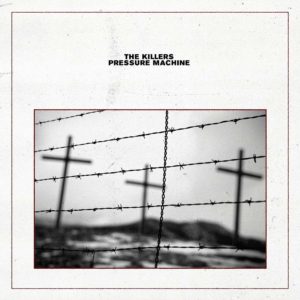 The Killers, on the other hand, came up with an excellent album, Pressure Machine, which recreated both the hopes and horrors of life in small-town Utah, and in an interesting and engaging way. They used short bursts of spoken word here and there between songs to create a backdrop, which was very effective. And they did not shy away from controversial topics, such as drug addiction, or sensitive ones, such as suicide. Plus the music complemented the lyrics very well, which is why they ended up qualifying as a finalist.
The Killers, on the other hand, came up with an excellent album, Pressure Machine, which recreated both the hopes and horrors of life in small-town Utah, and in an interesting and engaging way. They used short bursts of spoken word here and there between songs to create a backdrop, which was very effective. And they did not shy away from controversial topics, such as drug addiction, or sensitive ones, such as suicide. Plus the music complemented the lyrics very well, which is why they ended up qualifying as a finalist.
** *** ** *** ** *** **
Here’s another question we considered right at the beginning: How should we judge songs which feature excellent lyrics but mediocre music? After all, this contest is all about the lyrics, right? To deal with such a situation, we decided, we would need to weight the lyrics more heavily than the music in our scoring rubric. But, as we soon learned, such a situation almost never arises. And anyone who has ever made a serious effort to write songs will probably immediately understand why. Good lyrics are extremely difficult to pull off. It’s much easier to skimp on the lyrics and put more emphasis on the music and the production. And you can observe this in much of the music that has been released professionally over the past several decades as well as in amateur works.
The fact is that songwriters who are also poets are rare. Paul Simon is perhaps the most consistent purveyor of high-quality lyrics throughout a career which spans some sixty years now. And, of course, many of the songwriters from the golden era of the American Songbook, too, were masters of the written word.
But what about recent Pulitzer Prize-winner Dylan? Well, yes, he certainly has his moments. “Isis”, from 1975’s Desire, tells a gripping story that never gets old upon re-listening. And there are dozens of other Dylan songs which are equally captivating. “Most of the Time” from 1989’s Oh Mercy is another that deserves mention. But he has also released a lot of sloppy songs over the years, with lyrics that don’t even scan right in many cases. For example, I love “Stuck Inside a Mobile With the Memphis Blues Again” from his late ‘60s album, Blonde on Blonde. But try reading it off a printed page with no musical accompaniment. Or better yet, “Rainy Day Women #12 & 35”, from the same album, with its repetitive “everybody must get stoned.” Both fall flat.
But, some will perhaps counter, you wouldn’t read Dylan lyrics in isolation apart from the music. And that’s a fair point. Lyrics and poetry are two very different animals just as, say, theater and film are. A good film does not necessarily a good play make, and vice versa, and the same goes for song lyrics and poems.
** *** ** *** ** *** **
And, by the way, our hymns are perhaps the finest example of quality lyrics. Much of the music from the LDS hymnbook has timeless lyrics which never lose their power, even for many who have lost their commitment to the Church as an organization but who retain their sentiment for the culture of Mormonism or for uplifting aspects of its message.
W.W. Phelps is perhaps the most obvious author to mention here, but there are many others, both from that early time period and leading right up to today. The green hymnbook we all know so well was introduced in the 1980s and featured a number of new hymns which quickly became beloved fixtures in our meetings. Here are a few examples:
“I Believe in Christ”
“On This Day of Joy and Gladness”
“Our Savior’s Love”
“Where Can I Turn for Peace?”
And right now, work is proceeding on an updated hymn book which will undoubtedly continue expanding and furthering the LDS hymn tradition for new generations.
** *** ** *** ** *** **
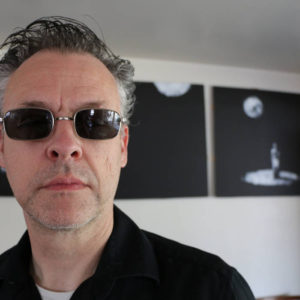 Moving on, let’s take a closer look at the finalists. I’d like to explain the process we went through to whittle those down to one winner. I mentioned one finalist, The Killers, above. They would have easily clinched the award if it hadn’t been for Christian Asplund’s unique and personal album, Fragility. (You can read the award citation for Asplund’s Fragility here).
Moving on, let’s take a closer look at the finalists. I’d like to explain the process we went through to whittle those down to one winner. I mentioned one finalist, The Killers, above. They would have easily clinched the award if it hadn’t been for Christian Asplund’s unique and personal album, Fragility. (You can read the award citation for Asplund’s Fragility here).
 David Archuleta, another of the finalists, can speak in a heartfelt fashion to the difficulties of navigating a relationship as a young person new to romance. However, we felt that Asplund had the weight of experience behind him, which enabled him, for example, to describe in simple yet devastating language the ache of abandonment in his song “In the Middle”:
David Archuleta, another of the finalists, can speak in a heartfelt fashion to the difficulties of navigating a relationship as a young person new to romance. However, we felt that Asplund had the weight of experience behind him, which enabled him, for example, to describe in simple yet devastating language the ache of abandonment in his song “In the Middle”:
Softly
I remember
Your kiss
And your letter
I cried
In the darkness
I lied
And I thought this
Was all
That I wanted
I was broken
You were gone
In others of his songs, though, I don’t always understand what Asplund is saying. Some of his lyrics are pretty esoteric. Yet I feel like I can usually grasp what he’s getting at in some primal sense below the conscious level at which we process language.
And, honestly, I think sometimes Asplund’s lyrics are just rhythmic devices not meant to impart any particular meaning. The rambling and muttering on “What Is This?” and the backwards lyrics à la Revolver on “This Was When” lend evidence to this theory.
Here’s another very simple lyric from Fragility in which Asplund combines with the music to become something closely resembling a hymn:
I can see you
Lead you, be you
We can exit
Enter, exist
Come rejoin the
Triumph of the
World
Come unscroll the
Threshold of the
Word
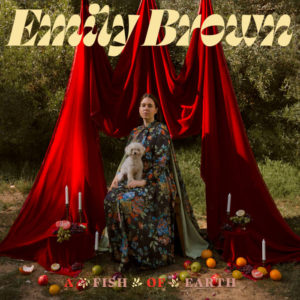 Emily Brown, another strong contender, brought powerful lyrics to her A Fish of Earth. But they sometimes tumbled out so fast that they overwhelmed the meter, creating a bit of a jumble which detracted from the melody. Only so many words fit into a verse or chorus, and she needs to work on editing her texts, perhaps. But she’s definitely an artist to watch going forward.
Emily Brown, another strong contender, brought powerful lyrics to her A Fish of Earth. But they sometimes tumbled out so fast that they overwhelmed the meter, creating a bit of a jumble which detracted from the melody. Only so many words fit into a verse or chorus, and she needs to work on editing her texts, perhaps. But she’s definitely an artist to watch going forward.
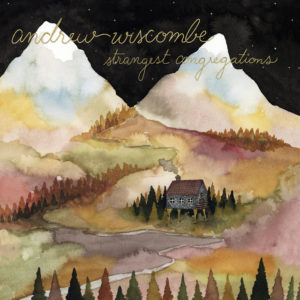 Andrew Wiscombe’s Strangest Congregations was the fifth finalist on our list. Wiscombe’s songs cover a wide range of subject matter, including politics and religion. Several of his songs seem like they might offer clues as to why he has chosen to step away from his faith recently. It’s very thoughtful material and, again, had it not been for Asplund and the Killers, he may well have taken the prize.
Andrew Wiscombe’s Strangest Congregations was the fifth finalist on our list. Wiscombe’s songs cover a wide range of subject matter, including politics and religion. Several of his songs seem like they might offer clues as to why he has chosen to step away from his faith recently. It’s very thoughtful material and, again, had it not been for Asplund and the Killers, he may well have taken the prize.
** *** ** *** ** *** **
Before I wrap this up, it occurs to me that it’s worth asking what qualifies a person to evaluate lyrics. What exactly is the proper background and experience for this activity? I majored in music as an undergrad, and the music theory and composition courses I took gave me insight into how to both write and interpret music. But what about lyrics? Where do they fit in?
I’ve been obsessed with music and songwriting ever since I discovered Marvin Payne’s LPs at the Provo Library while I was attending Farrer Junior High School as a teen. I wrote my first song, a retelling of the Lehi story from the Book of Mormon, right around that time, and I’ve continued to pursue the subtle art of combining words and music into a concise work which expresses a thought or an experience ever since.
I think we’ve already established that songs and poems are very different things, but there are ways in which they are similar. A good song and a good poem can both capture a moment or a memory or even an opinion. And they can do this either in great detail or in a sketchy, open fashion which leaves it to the listener’s imagination to fill in the blanks.
For example, after returning from a 4-year stint as a language teacher in Kuwait in 2006, I spent several months living with an old friend and former roommate in Kansas City, working as a substitute teacher and familiarizing myself with many of the LDS Church History sites that are so prevalent in that area.
One rainy day in the fall of that year, I decided to make the trek out to Adam-Ondi-Ahman, a site I had never visited before but which has always figured prominently in my imagination. I was alone in the car, and the cool weather put me in a subdued and contemplative mood. So I brooded as I drove along, soaking up the landscape and stopping to explore the small towns I encountered along the way. I had built up the idea in my head that I was taking an important pilgrimage and, as I sat there in silence in the car, a chorus and a lyric started to form in my mind.
Once I arrived, there was little or no information available onsite to guide me, and there was no one around to ask questions of. So I wandered around the area trying to interpret it as best I could, the whole time with that eerie chorus repeating itself in my head. Meanwhile, I struggled to reconcile the feeling of awe that surrounded me in this strangely quiet pastoral place with more scientific notions of what it might really mean for Adam and Eve, if they had, in fact, existed, to have inhabited the site. For example, if 2,000-year-old Roman ruins in Jerusalem are typically found 20 feet under the current ground level because of dust accumulation over time, wouldn’t a site as old as the first humans conceivably be buried hundreds of feet deep? If so, what was I even looking at or for? And yet, I continued to feel this otherworldly bliss as I walked around there, and it was connected with the notion that the place I was visiting was a meaningful place, perhaps even a holy place.
That chorus idea stuck with me, and sometime later, I sat down with a guitar and was able to put it to a sort of strumming pattern and then add verses which express generalized notions of what it may have been like for human beings to experience deceit and temptation and, later, children and progress, all for the first time. And, of course, what it’s like as a pilgrim to visit the site today.
For the sake of simplification, I conflated the place with the actual garden from which they would have been expelled before coming there, which Joseph identified as Independence itself. That will inevitably irk some listeners, but another way in which a song and a poem are similar is that both require a certain economy. Otherwise, you get so lost in explaining ill-fitting details that you lose the core message.
What I ended up with is a short memoir of a personal pilgrimage as well as a sort of ode to Adam and Eve, our alleged first parents.
I’ve written some 300 songs over several decades, which doesn’t include instrumental works I’ve written for small ensembles and piano. The quality of these works varies considerably, but I consider “Adam-Ondi-Ahman” to be one of my finest songs. The reason I bring that up here is because I think the process of writing this song and the experience I gained from it are relevant to my qualifications as a lyrics judge in an AML contest.
I’d also like to mention a song I wrote about the Prophet Joseph Smith more recently. It’s called “No Man Knows“, and I believe it eloquently captures the enigma of this man, whose work continues to inspire and bewilder and vex almost 200 years after his death.
My inspiration for the title of the song and its chorus is, of course, Fawn Brodie’s biography of Smith, whose title was, in turn, taken from a passage of the prophet’s famous King Follett funeral discourse.
In the verses, I describe events in the past tense, attempting to summarize what people experience today when trying to engage with the mysteries surrounding Smith. In the choruses, however, I move into the first-person present tense, seeking to get inside the head of the prophet himself in order to explore or imagine both the awe and the frustration he must have felt every day of his life.
And I wanted the song to be something everybody could engage with, so I tried to remain as neutral as possible in terms of the idea of whether or not Smith really was what he claimed to be.
 For those who might be interested, both of these songs were recently included in an album of original songs entitled Folk Song of The Fringe, which I released on BandCamp in 2020 after presenting the song collection in a Sunstone presentation at Sunstone SLC 2020. You can access that online album at the following link: https://twofortheshow.
For those who might be interested, both of these songs were recently included in an album of original songs entitled Folk Song of The Fringe, which I released on BandCamp in 2020 after presenting the song collection in a Sunstone presentation at Sunstone SLC 2020. You can access that online album at the following link: https://twofortheshow.
The lyrics for each song can be accessed by hovering over the song title, whereupon a “Lyrics” link appears out to the right.
There are twelve songs on the album, and each one addresses some aspect of religion generally or Mormonism specifically. Aside from Marvin Payne’s work, I’m unaware of other material that deals with Mormon themes in such a direct way without falling into the trap of being overly sentimental.
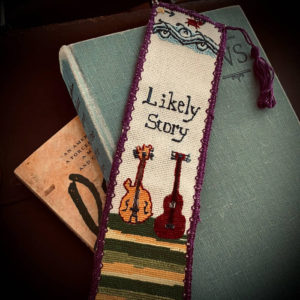 I’d love to continue this discussion with others who may be interested in discussing lyrics in more detail or who might even perhaps be interested in a potential collaboration of some kind. Please post a comment here or, if you prefer, I can be reached via email at novialist [at] gmail.com. If you email me, please reference this article in the subject line of your message.
I’d love to continue this discussion with others who may be interested in discussing lyrics in more detail or who might even perhaps be interested in a potential collaboration of some kind. Please post a comment here or, if you prefer, I can be reached via email at novialist [at] gmail.com. If you email me, please reference this article in the subject line of your message.

No doubt measuring the emotion and meaning beyond lyrics is distinctly different than reacting to the voice that delivers it. As such, it never ceases to amaze me the vast difference one’s emotional focus is from artist to artist. I thought your quick perspective on each artist provided an insightful launching point to enjoy each one.
When it comes to measuring art, I’ve come to believe in the Latin adage, de gustibus non est disputandum, or, roughly, you can’t argue with what someone likes. I think this is true of all the arts, but music and poetry can be especially difficult to judge in a systematic way, and poetry set to music? No easy task.
I do, though, believe that, as with most things, practice makes you better (though probably not perfect). It’s in this sense that I appreciated David’s description of not just which lyrics he thought worthy of attention and praise but of the practice of evaluating lyrics–what goes into making a good lyric and how one develops a finer appreciation for the art. It’s clear that his own attention to the discipline of songwriting served him well, and I enjoyed his songs enough to hope that sometime soon he’ll leave the responsibility of judge to someone else and throw his own work into the ring for consideration.
It is really hard to find musicians that write good lyrics. Thanks Dave for articulating this so well. I find that there are others artists who I really like their lyrics. I think that John Denver and Gordon Lightfoot both had some really nice lyrics. Some of my favorites are some of their deep tracks. But, as you stated, I think Paul Simon has to be at the top of the heap. I find myself liking an artist more if I know they wrote their lyrics. I think Elton John is a fantastic musician, but you have to credit the lyrics to another good lyricist Bernie Taupin. Others who move the needle for me are Carol King, Neil Diamond, Paul Mccartney and a more recent addition Sarah Bareilles.